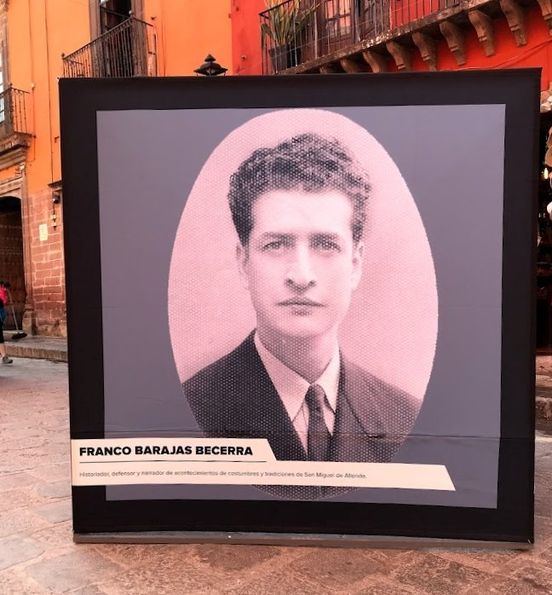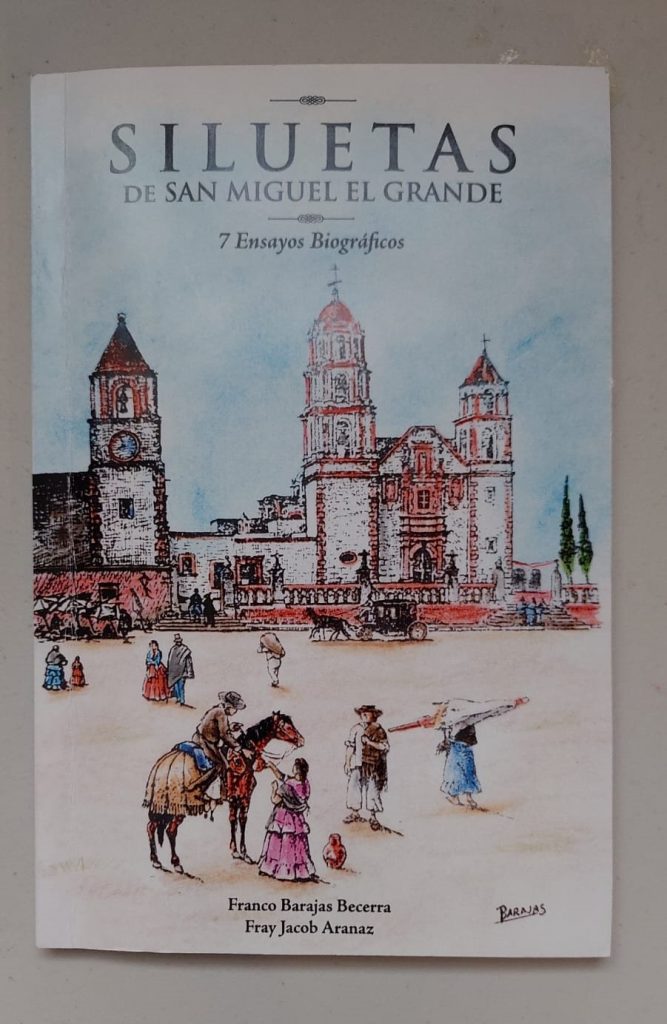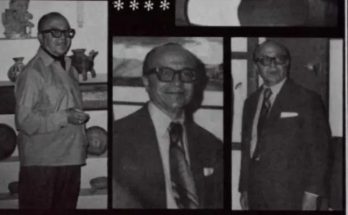By Luis Felipe Rodriguez Palacios
Franco Barajas Becerra was born in San Miguel de Allende on May 20, 1906, and died on May 24, 1985. He was a major contributor in the city during his life. He was an historian, but much beyond that, he was a defender and narrator of the events of customs and traditions of San Miguel. He rescued the old traditions of narrative literature and forms of language from other times. His narratives express with purity and precision the colonial atmosphere that characterizes San Miguel.

In his youth, he distinguished himself as an athlete, especially in baseball. Even up to 1937, he was part of the “alliance” team and later distinguished himself in racquetball. Barajas married Cuquito Orozco, from Leon, on July 4, 1931, and remained a faithful husband and father to their children. He was also a founding member of the local Lions Club.
It is important to recognize that he was not the only member of his family to have a lasting impact in the city. His younger brother, Antonio, was the city’s second official city chronicler.
On February 10, 1930, Leobino Zavala Camarena founded the first secondary school in San Miguel, acting as director and professor. Barajas became part of the teaching and administrative staff and dedicated 50 years to teaching at various levels of the educational system. He aptly combined philosophy as an academic discipline and administrative sciences as a professional activity. His work in teaching was recognized with the medal of teaching merit in May1983 by the then-president of the republic, Miguel de la Madrid.
There is much to remember about the great master Don Franco Barajas Becerra. He distinguished himself as a writer, historian, and reporter. Ignacio Reyes Retana, a prominent lawyer and historian, stated that, «… he was extraordinary when teaching algebra and trigonometry … very knowledgeable about the history of Mexico. He was a beautiful person, incapable of harming anyone … he devoted himself body and soul to his classes.”

In 1981, Barajas published his book, “Vignettes from San Miguel.” The narratives were praised by Fray Jerónimo Verduzco, who said that the stories in this book are. «… tasty with the flavor of things from the homeland, at times wingedly carefree and buzzy … they constitute a fiery lyrical and filial homage to this Saint Michael the Great.”
We are neither indigenous nor Spanish. We are an amalgam of two cultures and two blood—Mexicans. An unmistakable, singular, and unique profile defines us among the peoples of America and the world. Barajas’ writings were based on the rich traditions of the past, and he raised his voice to recognize and safeguard the beautiful profile of this reliquary of America: a city whose name pays homage to an archangel from heaven and a hero of the independence of Mexico—San Miguel de Allende.




